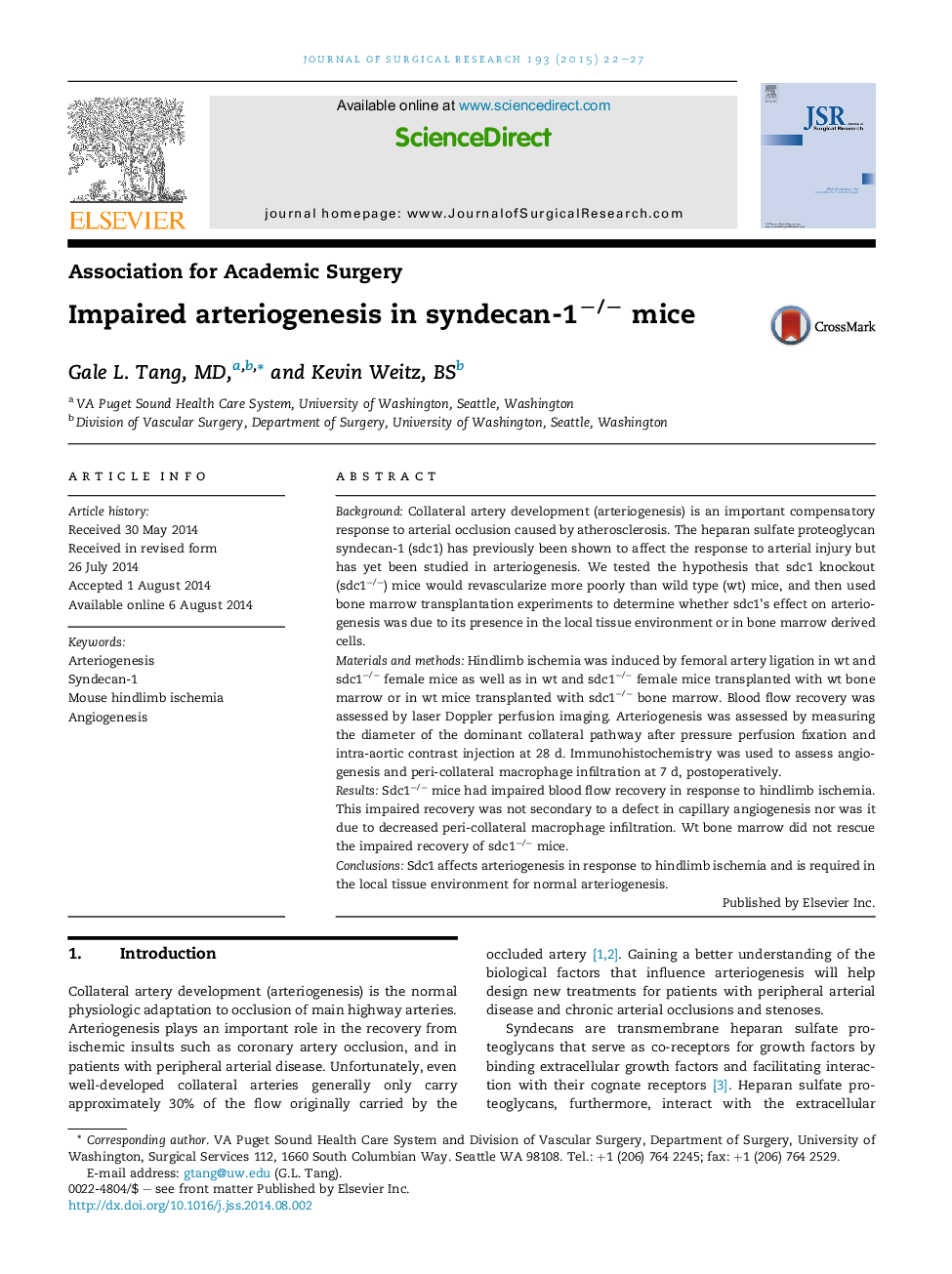| Article ID | Journal | Published Year | Pages | File Type |
|---|---|---|---|---|
| 6253655 | Journal of Surgical Research | 2015 | 6 Pages |
BackgroundCollateral artery development (arteriogenesis) is an important compensatory response to arterial occlusion caused by atherosclerosis. The heparan sulfate proteoglycan syndecan-1 (sdc1) has previously been shown to affect the response to arterial injury but has yet been studied in arteriogenesis. We tested the hypothesis that sdc1 knockout (sdc1â/â) mice would revascularize more poorly than wild type (wt) mice, and then used bone marrow transplantation experiments to determine whether sdc1's effect on arteriogenesis was due to its presence in the local tissue environment or in bone marrow derived cells.Materials and methodsHindlimb ischemia was induced by femoral artery ligation in wt and sdc1â/â female mice as well as in wt and sdc1â/â female mice transplanted with wt bone marrow or in wt mice transplanted with sdc1â/â bone marrow. Blood flow recovery was assessed by laser Doppler perfusion imaging. Arteriogenesis was assessed by measuring the diameter of the dominant collateral pathway after pressure perfusion fixation and intra-aortic contrast injection at 28Â d. Immunohistochemistry was used to assess angiogenesis and peri-collateral macrophage infiltration at 7Â d, postoperatively.ResultsSdc1â/â mice had impaired blood flow recovery in response to hindlimb ischemia. This impaired recovery was not secondary to a defect in capillary angiogenesis nor was it due to decreased peri-collateral macrophage infiltration. Wt bone marrow did not rescue the impaired recovery of sdc1â/â mice.ConclusionsSdc1 affects arteriogenesis in response to hindlimb ischemia and is required in the local tissue environment for normal arteriogenesis.
